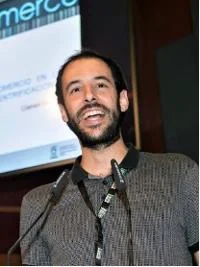DiSTO Spain
Context
- In 2024, 96.3% of the Spanish population aged 16-74 reported having access to broadband and 83% stated they had access to a computer (INE, 2024)
- Spain has high internet usage. In 2024, 95.8% of the population aged 16-24 reported using the internet in the last 3 months (INE, 2024). Moreover, in 2023, weekly usage was between 94-96% of the population (ONTSI, 2024)
- For young people (10-15yo), internet access and use is also extremely high. In 2023, 94.7% of young people reported that they had used the internet in the last 3 months (ONTSI, 2024)
Projects in Spain
DiSTO Spain examines digital inequalities in two areas: e-learning and job opportunities.
The objective of this research is to understand if material resources in a given district of a big city can shape digital opportunities and, eventually, have an impact on the outcomes of online education. In this sense, Madrid is an interesting case study because:
- High speed internet connection is available in all the districts of the city. However, not everybody can afford the costs of this kind of connection
- During the pandemic, the Spanish government's lockdown required all students to stay home and access their education online
- In this context, it is reasonable to think that internet connection had an impact on student's educational experience and outcomes. For example, a lack of internet connection or equipment could impact a child's class attendance
The research
In order to achieve the objectives of this research, we:
- Mapped the 21 districts of Madrid using socio-economic indicators
- Chose 4 of those districts (one for each typology, depending on households’ socio-economic resources) and administered a survey for young residents of those districts (from 15 to 20 years old).
Methodology - surveys of neighbourhoods
The first phase involved classifying the 21 districts of the city based on their level of resources and heterogeneity.
We then selected four districts with extreme values in these dimensions:
- Privileged and homogeneous (Hortaleza)
- Privileged and non-homogeneous (Chamartín)
- Impoverished and non-homogeneous (Tetuán)
- Impoverished and homogeneous (Puente de Vallecas)
In the second phase, we surveyed young people between 15 and 25 years old. For this purpose, we created four samples, one for each of the previously selected districts, aiming to make them proportional to the segments generated by the variable "parents' education level". The goal was to replicate the households' material resources that characterise the four districts. The survey received a total of 1066 responses.
Findings
Descriptive analyses suggested that:
- There was a high presence of technology in respondents’ homes, regardless of the district they lived in
- Respondents reported navigation patterns characterised by a high degree of autonomy, measured by the number of places from which internet connections were made. T indicates a high diffusion of technology and internet connectivity in different households
- There was greater prevalence of 4G or mobile connections in homes in impoverished districts. This type of connection is considered lower in quality compared to fibre or ADSL and implies a poorer internet browsing experience. Consequently, this could suggest a lower level of digital skills acquisition
- Individuals living in districts with greater resources had higher levels of digital skills. Young people living in Chamartín or Hortaleza, acquired new computer and work-related skills through internet use to a greater extent than those living in Tetuán or Puente de Vallecas
Logistic regression models were used to observe the impact of respondents’ material and digital resources on their engagement with online education.
According to the results of these analyses, we found that:
- Parents' education level (a proxy for household resources) had a positive impact on mitigating problems related to online teaching
- Internet connection quality reduced the likelihood of encountering problems during online classes
- A higher number of connected devices in the household reduced the likelihood of perceiving internet connectivity as an obstacle to online class participation
- Accessing the internet from a variety of locations was negatively related to skills. This suggests that varied internet access should not be seen not as a sign of autonomy. Rather, results indicate that students were pressured to compensate for their poor home connections by accessing the internet elsewhere.
- Digital skills reduce the probability of having negative experiences with online education.
Funding
This research project is founded by Fundación Reina Sofia sobre Juventud y Adolescencia and supported by the department of Sociology and Communication, University of Salamanca.
Objectives
This project studied the relationship between digital inequality and access to the labour market. Specifically, we examined the impact of online job search skills on the probability of obtaining employment using digital platforms.
Spain makes for an interesting case study because:
- The country's labour market is characterised by high unemployment rates, especially in comparison with the rest of the EU (source: Eurostat)
- Using digital platforms to find work is popular among Spanish job seekers, partially due to the country's high access to the internet and high unemployment rate (source: De Marco et al., 2025)
The research
In order to achieve the research objectives, we:
- Analysed Spanish online platforms for professional social networks
- Studied candidates and recruiters that operated through these platforms simultaneously
- Combined "classical" research tools, such as questionnaires and in-depth interviews, with methodologies that are mostly used in computer sciences, such as those based on Big Data analysis
Methodology - interviews and surveys
We conducted 86 semi-structured interviews with job seekers and recruiters from 2020 to 2021.
For recruiters, we created a sample of 35 respondents separated into two categories: headhunters (type 1) and mixed recruiters (type 2).Type 1 recruiters focused on highly qualified workers, while type 2 recruiters focused on middle or low-qualified workers. Overall, type 1 recruiters actively searched for and contacted potential candidates, while type 2 recruiters engaged in a combination of active and passive activities, primarily reviewing applications instead of reaching out to potential candidates.
For job seekers, we created a sample of 51 candidates divided into four categories based on educational background and work experience.
Additionally, we conducted two surveys with representative samples of Spanish jobseekers. Both surveys included sociodemographic variables, indicators of digital skills, employment search outcomes, and a specially constructed scale to measure online job search skills. One of the surveys included a burnout scale adapted to online job search processes.
Results
Noteworthy results of this project include:
- A new scale for measuring digital skills for online job search which received a positive psychometric response
- We identified two distinct typologies of job candidates: a) VIP candidates with highly sought-after profiles in the job market and b) "regular" candidates with common profiles. The former does not require advanced search skills to find employment, while the latter does
- Individuals with fewer material and digital resources exhibit fewer job search capabilities and are more likely to abandon their search
- Job seekers with better job search skills demonstrate an "intuition" about how algorithms sort applications on job search platforms
- Higher levels of skills were associated with a lower probability of experiencing burnout during the job search process
Funding
This research project is funded by Spanish Ministry of Science and Innovation (ref. RTI2018-098967-A-I00).

Stefano De Marco – Principal Investigator
Stefano De Marco is a social psychologist. He obtained an MA in Constitutional Law at the Political and Constitutional Research Institute (Spanish Ministry of Presidency) and Ph.D. in Sociology at the Complutense University of Madrid. He has been working in several Spanish public research institutes, such as the National Sociological Research Centre, the Advanced Social Studies Institute and the National Institute for Educational Assessment. He is currently an Assistant Professor at the University of Salamanca. He has been participating in several research projects on information society and on political participation in Spain, being his research interests related to digital divide and digital inequality, digital political participation and citizens’ involvement in political processes.

Daniel Sorando
Daniel Sorando is a sociologist and an assistant professor in the Applied Sociology Department at Complutense University of Madrid. Previously, he taught at NYU Madrid and was visiting scholar at Brown University (MA, USA). His research focus is on residential segregation, housing and social urban movements, with particular attention to gentrification processes and its link to inequality. On this issue, he is co-author of First we take Manhattan: la destrucción creativa de las ciudades [First we take Manhattan: the creative destruction of cities] (2016). He has published several journal articles and book chapters. Also, he has worked for several public administrations in the field of the sociology of youth and has been a member of different funded R&D projects.

Guillaume Dumont
Guillaume Dumont, Assistant Professor, OCE Research Center, EMlyon Business School (https://oce.em-lyon.com/guillaume-dumont/). From studying professional rock climbers in the Yosemite National Park to work alongside social entrepreneurs in Barcelona Technological District, Guillaume Dumont is an Anthropologist studying how people create things at work and what makes these things valuable. Ethnographic in nature, his work provides a sociological understanding of worth construction in organizational and entrepreneurial processes.
José-Luis Martínez-Cantos
José-Luis Martínez-Cantos is Assistant Professor at the Department of Applied, Public and Political Economics of the Complutense University of Madrid (UCM). Previously, he was member of the Experts Group on gender issues of the Spanish National Observatory of Technology and Society (ONTSI), Post-doctoral Research Fellow and Lecturer in Applied Sociology at the Faculty of Education of the UCM, and Post-doctoral Research Fellow at the Internet Interdisciplinary Institute-IN3 of the Open University of Catalonia (UOC). His main research interests are linked to Digital Society, gender relations, educational opportunities and labour market inequalities.